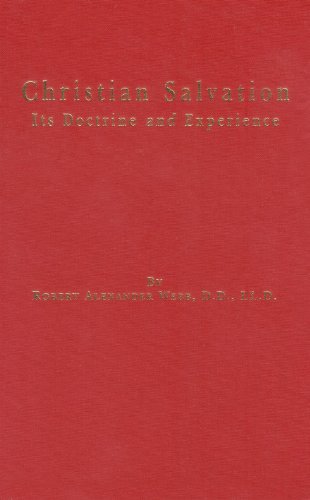Description
R A WEBB
Excerpt:
“…Jesus lifted his eyes, and said, Father, I thank thee that thou hast heard me. And I know that thou hearest me always” (Jno. 11 41, 42). His prayers must be all-prevalent, because he can never, through ignorance or badheartedness, ever ask amiss. He and his Father are one; they always see from the same point of view and have a community of feeling about every matter; and consequently the Redeemer always reflects the Father’s mind and can ask nothing which is not in accordance with the Father’s will. He prayed for his murderers at the cross; and who can say that these very persons will not appear at last in heavenly glory saved by the very grace which saves any other sinner, themselves the beneficiaries of their own act and splendid trophies of divine grace and mercy? There is no presentation in Scripture of any unanswered prayer offered by the Redeemer.
III. Two Intercessors.
The sinner enjoys the royal honor and the lofty privilege and the distinguishing blessing of having two attorneys to plead his cause, both members of the adorable Godhead and each serving him without money and without price. One intercessor is the triumphant Redeemer and the other is the Holy Spirit. “The Spirit itself maketh intercession for us with groanings that cannot be uttered” (Rom. 8:26). Both the Second and the Third Persons of the Trinity are thus said to be the advocates of the sinner.
(1) These two intercessions differ as to place. The Son pleads in foro dei, in the court-room of God; the Spirit pleads in foro conscientiae, in the court-room of the conscience. The one attends to the interests of the Christian in heaven; the other attends to his interests on the earth. One pleads in the higher court of the Lord; the other in the lower court…”




Reviews
There are no reviews yet.